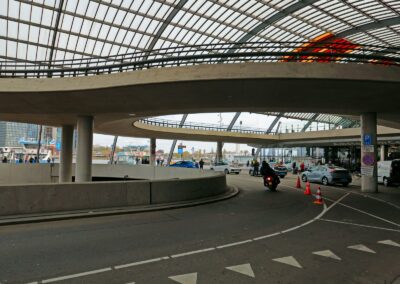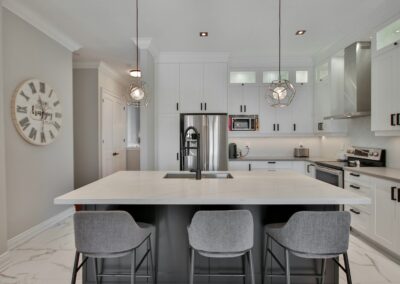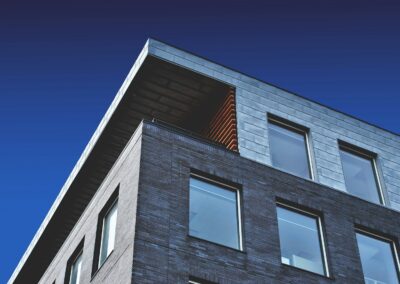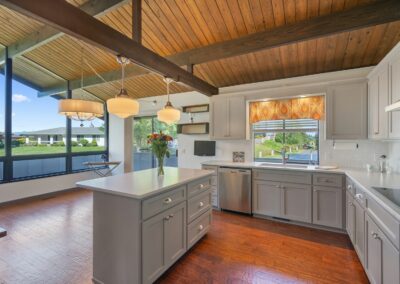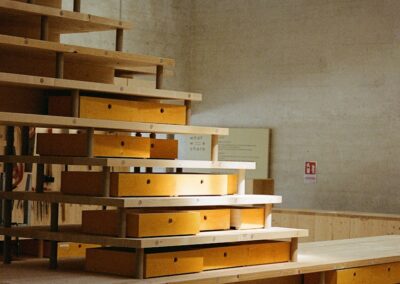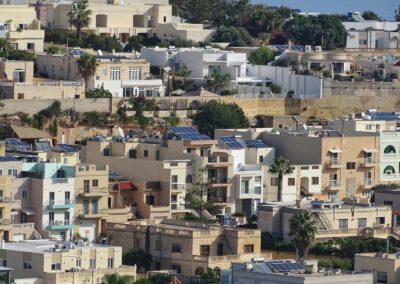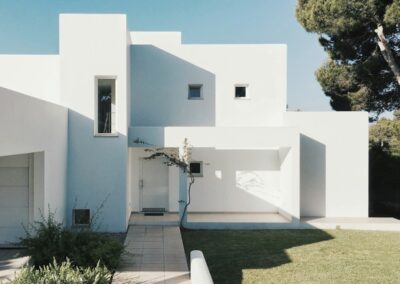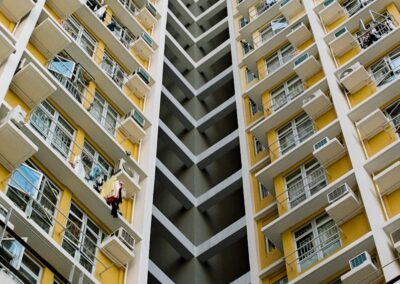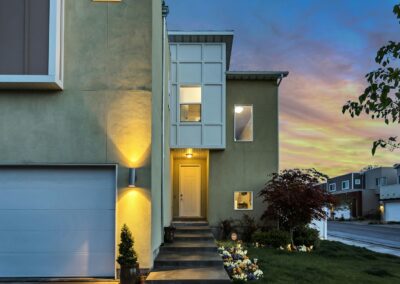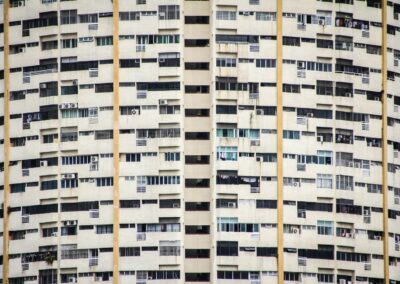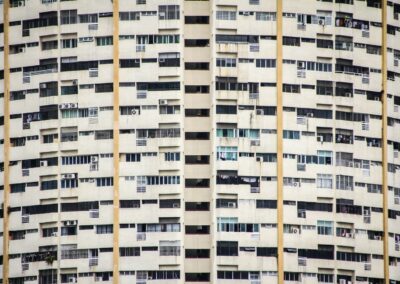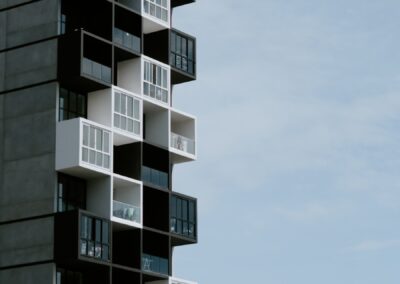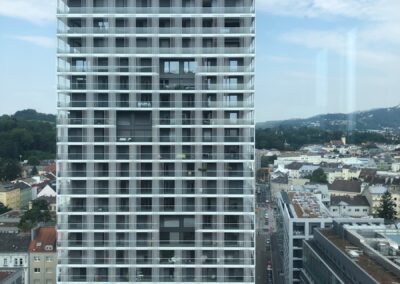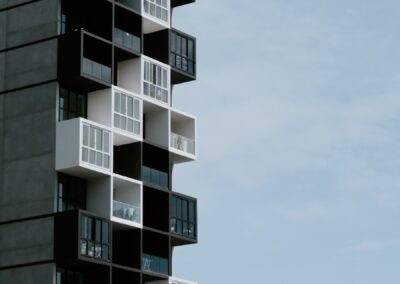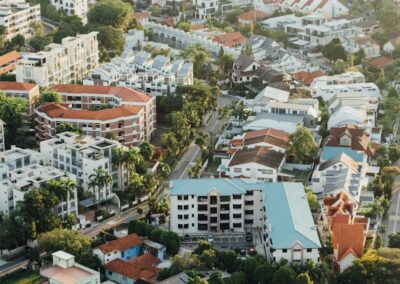The Evolution of Modular Housing
Flexibility and Adaptability in Housing
In the rapidly changing urban landscapes of cities like Riyadh and Dubai, modular housing designs offer a promising solution to meet the evolving needs of residents and communities. Modular housing is characterized by its flexibility and adaptability, allowing for quick construction, easy modifications, and efficient use of space. This approach to housing is particularly beneficial in regions experiencing rapid growth and development, where traditional construction methods may struggle to keep pace.
Modular homes are built in sections, or modules, in a factory setting, which are then transported to the site for assembly. This process not only speeds up construction times but also ensures higher quality control and reduces waste. The adaptability of modular housing means that units can be easily expanded or reconfigured to accommodate changing family needs or community requirements. For instance, a family may start with a small unit and add more modules as their household grows.
For business executives and mid-level managers in the real estate and construction industries, investing in modular housing designs presents an opportunity to deliver high-quality, sustainable housing solutions efficiently. By leveraging the benefits of modular construction, developers can meet the increasing demand for adaptable living spaces while maintaining control over costs and timelines.
Sustainable Living and Efficiency
Sustainability is a key advantage of modular housing designs. The controlled factory environment allows for precise use of materials, reducing waste and minimizing the environmental impact. Additionally, modular homes can be equipped with advanced energy-efficient systems, including solar panels, smart home technologies, and sustainable building materials, to create eco-friendly living spaces.
In the UAE, initiatives to promote sustainable living are gaining momentum, with modular housing playing a significant role. The integration of renewable energy sources and smart home technologies in modular designs helps reduce energy consumption and carbon footprints. For example, homes can be outfitted with intelligent energy management systems that optimize power usage based on real-time data and user preferences.
Entrepreneurs and project managers focused on sustainability can find significant opportunities in the modular housing market. By adopting green building practices and incorporating cutting-edge technologies, they can develop housing solutions that align with global sustainability goals and appeal to environmentally conscious consumers. This approach not only benefits the environment but also enhances the marketability and value of residential properties.
Cost-Effective and Scalable Solutions
Cost efficiency is another critical benefit of modular housing designs. The factory-based construction process reduces labor costs and material waste, leading to significant savings compared to traditional building methods. These savings can be passed on to consumers, making affordable housing more accessible to a broader population.
Scalability is a crucial factor for developers in rapidly growing urban centers like Riyadh and Dubai. Modular housing can be scaled up or down quickly to meet the fluctuating demands of the housing market. Large-scale projects can be completed in a fraction of the time required for conventional construction, allowing for faster occupancy and revenue generation.
For business leaders and developers, the ability to scale modular housing projects efficiently provides a competitive edge. By delivering high-quality, cost-effective housing solutions swiftly, they can respond to market demands and capitalize on emerging opportunities. This agility is essential in dynamic markets where timing and efficiency are key drivers of success.
Technological Integration in Modular Housing
AI and Smart Home Integration
Artificial Intelligence (AI) and smart home technologies are revolutionizing the modular housing industry. By integrating AI-driven systems, modular homes can offer personalized living experiences that enhance comfort, convenience, and energy efficiency. Smart home features such as automated lighting, climate control, and security systems can be seamlessly incorporated into modular designs.
In cities like Dubai, smart home integration is becoming a standard expectation in new residential developments. AI-powered systems can learn from residents’ behaviors and preferences, optimizing home environments to suit individual needs. For instance, AI can adjust lighting and temperature settings automatically based on the time of day and occupancy patterns, providing a comfortable and energy-efficient living experience.
For technology entrepreneurs and business executives, the convergence of AI and modular housing presents an exciting opportunity for innovation. By developing and implementing smart home solutions in modular projects, they can enhance the appeal and functionality of residential properties, attracting tech-savvy consumers and setting new standards in the housing market.
Blockchain for Transparent Transactions
Blockchain technology offers a secure and transparent way to manage transactions and data in the modular housing sector. From property sales and leases to maintenance records and energy usage, blockchain can provide an immutable ledger that ensures data integrity and trust among all stakeholders.
In the UAE, blockchain is being explored to streamline real estate transactions and enhance transparency. By adopting blockchain in modular housing projects, developers can simplify processes, reduce administrative costs, and improve trust between buyers, sellers, and service providers. This technology can also facilitate peer-to-peer energy trading, allowing residents to buy and sell excess energy generated from renewable sources.
For business leaders and project managers, leveraging blockchain technology in modular housing projects offers several advantages. It can enhance operational efficiency, reduce costs, and build trust with consumers and partners. This innovative approach can differentiate their projects in a competitive market and contribute to the broader goal of digital transformation in the real estate industry.
The Metaverse and Virtual Design
The metaverse, a virtual shared space, is opening new possibilities for designing and marketing modular housing. By creating digital twins of modular homes and communities, developers can offer immersive virtual tours and simulations, allowing potential buyers to experience properties before they are built.
In Riyadh and Dubai, the use of virtual reality (VR) and augmented reality (AR) in real estate marketing is gaining traction. Prospective buyers can explore modular homes in a virtual environment, making informed decisions based on detailed visualizations and interactive features. This technology also enables architects and developers to test and refine designs, ensuring optimal functionality and aesthetics.
For project managers and marketing professionals, the integration of the metaverse into modular housing projects provides a powerful tool for engagement and innovation. By offering virtual experiences, they can attract a global audience, enhance customer satisfaction, and drive sales. This forward-thinking approach aligns with the digital trends shaping the future of real estate.
Conclusion
Modular housing designs offer flexible, adaptive, and sustainable solutions to meet the evolving needs of residents and communities. By incorporating renewable energy sources, leveraging advanced technologies like AI and blockchain, and utilizing innovative construction methods, modular homes can provide high-quality, cost-effective, and eco-friendly living spaces. For business leaders, entrepreneurs, and project managers, investing in modular housing projects presents significant opportunities for innovation, growth, and leadership in the real estate market. By embracing these trends, they can contribute to the development of sustainable, resilient, and smart urban communities that enhance the quality of life for residents and support global sustainability goals.
—
#ModularHousing #FlexibleHousing #SustainableLiving #AI #Blockchain #Metaverse #ModernArchitecture #SaudiArabia #UAE #Riyadh #Dubai #BusinessSuccess #Leadership #ManagementSkills #ProjectManagement


